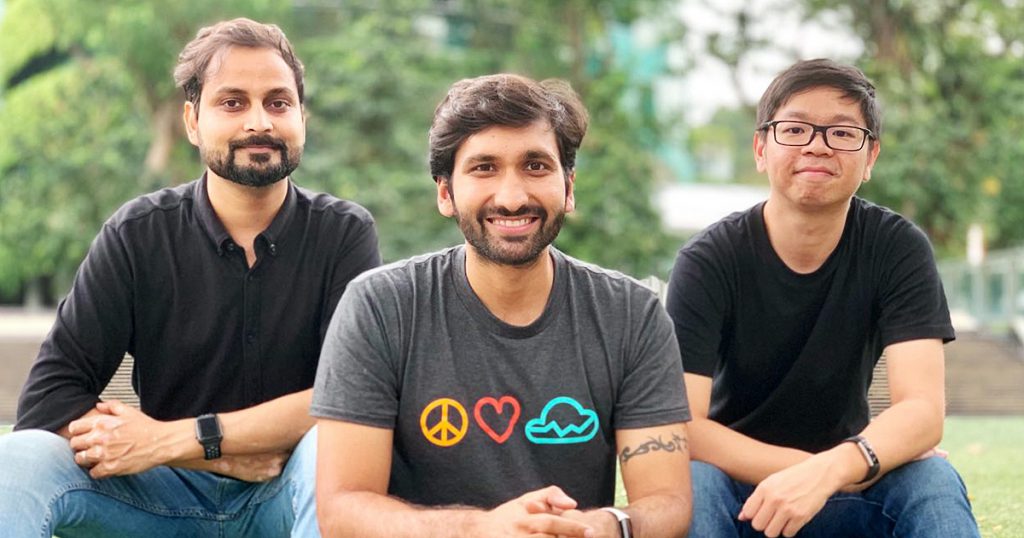[Update 22 May 2019]
Rental marketplace MyRent just announced its official launch on 22 May 2019.
Five months after rolling out its beta app in December last year, MyRent since gathered more than 2,000 registered users in Singapore, who have over 800 active listings on the app now.
As users rent out their items on the platform, they also enjoy an ease of mind through MyRent’s Lender Protection Guarantee.
The firm is next planning a roll-out in Malaysia “slated for end-2019”, with hopes to bring their service to “more markets”.
They also say they will be “exploring merchant [and] ecosystem partnerships” to help stores rent out their unused inventories, and even possibly delivery options in the future.
–
Sharing gives us access to so much more than the things we individually own.
You can get a ride anytime without owning a car, thanks to apps like Grab and Go-Jek, or find somewhere to hustle at a co-working spaces, without having an office of your own.
You can even borrow a powerbank if you don’t have one with you when your battery goes flat, or rent a luxury watch to adorn your wrist at fancy events.
Why buy when you can share, right?
It’s with this philosophy that the founders of a Malaysian property rental app called MyRent decided to shift their focus after working in the property market since 2014.
Thinking further beyond houses, 28-year-old co-founder Ishwar Dhanuka now has his mind set on helping people in Singapore rent anything from peer-to-peer, to get the most out of items that we don’t use all the time.
From the winter coat lying in your closet after a vacation years ago, to decorations and games you’re only looking to use for one party, he wants to connect people together to lend and borrow what we have.
Ishwar realised we’ve been missing this opportunity when he was once preparing for a skiing trip, and found it too expensive to get equipment with all the tourist mark-ups on destination.
“If only we could rent from people who’ve gone for similar vacations, [they would] be able to recover some of their expenditures, [and we could] have a fantastic time at a fraction of the cost,” he thought.
And if we started sharing our things at a larger scale, not just within our own social circles, he believes “it’s really a win for all of us”.
Coding Because He Wants To Impact People
Before he became a computer science graduate from Monash University, Ishwar, an Indian national, discovered his interest in coding at a young age. By 14, he had already developed his first for-commercial-use website.
Later, he created and launched an app on the Android Play Store for his university final year project, called Profileroid.
While it’s no longer available today, the app helped people customise settings on their phone, such as the bluetooth, ringtones and alarms, to change according to their location (if they moved from work to home) or calendar (when special events came up).
“This was the first time I used my tech skillset to really help people’s daily lives,” says Ishwar, looking back on a moment he learned how gratifying it was to make an impact with his work.
So it seems natural that he then propelled himself onto the path of the ‘startup life’ once he set out in his career.
Ishwar tried his hand at various fields, first working for a dating startup, and then another in fintech.
It was after two to three years since he stepped into the working world that he began to conceptualise his own app, and became the founder and CEO of his app developing firm, BinarizeMe in 2014.

Living in Kuala Lumpur for much of his life, his own frustrations in finding a place for rent became the inspiration to create MyRent, in order to bridge the gap for others like himself in Malaysia.
“As a student and subsequently a working professional, the few times I had to find a new place to rent were painful, inefficient, and inconvenient.”
“So I decided to take the matter into my own hands, and brought in my friends to solve this problem for the community together,” Ishwar says.
His Team Stayed Together With The Same Hopes, From M’sia To S’pore
While he mainly helmed the mobile engineering of the app as his expertise, Ishwar now also had to be a “jack of all trades” as a founder of his own company, getting heavily involved in marketing, media relations, design and product development aspects that he was new to.
Thankfully, his friends, fellow engineers and co-founders Mark Kok (28) and Rahul Sharma (32), have been alongside him since the beginning.
With visions aligned, the trio understood from the start that their aim was to first showcase how they could solve real world problems with their tech, with monetisation only to come much later.
Together they invested a small sum of RM200,000 (about S$66,500) to get started, while they dedicated much more of their time and effort to build up the platform, and were all willing to go through a bootstrapping phase before making the app profitable.
Their work paid off with a user base of over 20,000 tenants and landlords by 2016, bringing in a steady flow of about 15 new property listings each day, which Ishwar says was “all organic, without a single cent spent on marketing”.

However, it was also at this time that they made the tough decision to pivot their product.
“We stopped actively working on [MyRent as a property rental app] in late 2016, [as we saw that] there’s plenty of competition in the space today with very little profitability.”
Since they’d achieved their objective of helping Malaysians look for places to rent in “a convenient, mobile-friendly and safer way”, they decided to let the product continue to run on its own, while they moved on.
Coincidentally, as they were each spending more time in Singapore with their individual careers, they chose to work on their next chapter here.
In part, Ishwar says their relocation was impacted by observing a good ecosystem provided for business owners. “After having been here awhile, we’re able to understand why Singapore regularly tops Ease of Business rankings,” he says.
The other factor for their pivot was seeing a “paradigm shift in consumer behaviour”, with people leveraging on the sharing economy to make life more convenient.
Aiming To See 100 Rental Exchanges Per Day
The team launched the beta version of their new MyRent app to the public in Singapore in December 2018.
In two months, Ishwar says they closed in on their first 1,000 user registrations driven mainly through word-of-mouth with “a minimal daily spend on digital ads”.
Our first ever rental transaction actually took place within a week of us going live, which was an extremely exciting moment for us.
Now, with new partners to boost their marketing and data science expertise, as well as some informal investment offers being considered, the co-founders works towards a goal of enabling 100 successful transactions on MyRent per day. Ishwar believes this will be possible within the next 6 months, while he added, “Fingers crossed!”
“We see a huge overlap between our borrowers and lenders; essentially we don’t expect a user to belong to either group, but really both.”

He explains that we all own some temporary-use items—like drones, cameras, party props, video games, winter wear, and more—which may have cost us large amounts only to end up in storage after we no longer have use for them.
“[MyRent can be] a platform for us to justify these purchases by renting them out as opposed to having them sit idle in our houses collecting dust.”
“On the other hand, [if you need] that latest GoPro and snorkelling mask for an island vacation, [getting your hands on them] at $50, all in, would only make the experience so much better!” Ishwar says.
Taking Care Of “Pioneers” Who Took A Chance With Them
Using MyRent is free for now, but the founders are looking to implement service fees by Q4 2019, which they liken to how Airbnb sustains itself.
Before getting there, they’re taking a data-driven approach towards deciding on an appropriate percentage to charge per transaction, that will be “fair, acceptable, and worth it” to users.
Ishwar also expresses how grateful he is for the early users who’ve supported the MyRent app, and he doesn’t simply say it to pay lip service.
Calling them the “Pioneers”, he says the first 5,000 registered users will continue to enjoy their service for free for 2 years after they roll out the charges.
“These early users are critical to our success as they share with us feedback, insights, and an understanding of how we’re doing,” he says.
The MyRent team has been keeping close to their Pioneers, actively reading the reviews they leave on the app stores, and reaching out through their in-app chat or even meeting up in person to gather some honest feedback.
In other ways, they’re working to give users a seamless experience, by optimising the listing process so it’ll take less than a minute to put up a new item.

They also hope to establish trust and a sense of security by covering users’ item on the platform with insurance of up to $1,000, an amount which they intend to progressively increase as their user base grows too.
As mentioned before, the co-founders are determined to build the startup through a bootstrapping phase, before reaching monetisation—and till then, they each hold a stake in the company that they believe will pay off.
“Going by our current forecasts, we’re aiming for profitability (via service fees) in about two to three years,” says Ishwar.
But more than that, they aim to create impact and encourage sharing behaviour to become a new norm for us in Singapore.
You can find MyRent for iOS on the App Store here, and for Android on the Play Store here.
Featured Image Credit: MyRent










